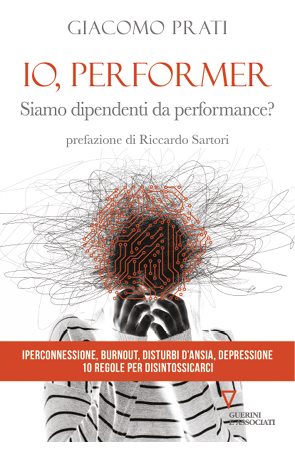These days, people increasingly feel that time is racing and is too short. It seems that time is becoming a raw material to be consumed, a rare and precious resource. People are always in a hurry, a situation that sociologist Hartmut Rosa defines as “social acceleration.”
According to the philosopher Byung-chul Han, the perception of this fleetingness of life generates a reaction of hyperactivity and performance accompanied by a hysteria of productivity, which he defines as the “performance society,” in which there is constant need to accumulate performance. Performance becomes the answer to acceleration and, in turn, feeds it.
In this way, the performance society awards only those who excel and penalizes those with disadvantages, for example, people with psycho-physical or socio-economic issues.
This creates a fear of inadequacy, of not performing enough, fear of not being able to assume the form and image required by society, by the market, and by businesses.
Performaholism: addiction to performance
Constant focusing on performance isn’t related exclusively to work: it now also fills “leisure” time, to be demonstrated on social networks, in chats, or to be monetized.
In my latest book, “Io, performer. Siamo dipendenti da performance?” (“I, performer. Are we addicted to performance?”), published by Guerini e Associati, I point out that in this society we constantly want to be performers: we spend time to be more attractive, we want to show that we’re productive, and relentlessly create new projects that never completely satisfy. This generates a new illness: performaholism, i.e., addiction to performance.

For a new culture of performance
Performance can certainly be a tool for satisfaction and learning, but has to be part of a new culture of performance that safeguards sustainability.
A society that is more and more competitive, self-centered, and uncooperative generates inequalities between people who are advantaged and people whose lives are precarious.
In a scenario that glorifies success and results, people with obvious psycho-physical limits or who need answers to specific demands risk being excluded or being subjected to heavy social pressure. This emphasizes their weaknesses instead of making the most of their personal qualities and the goals they have achieved.
A person forced to chase after higher and higher standards, to achieve “perfection,” is at risk of new disorders. We need a detox process, we need to find new strategies, to develop a social consciousness that promotes well-being focused more on individuals and on the community, rather than on the mere adulation of success.
https://www.guerini.it/index.php/prodotto/io-performer/

.jpg)



.png)